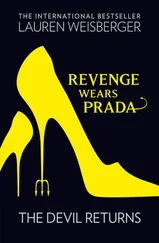These things were all hugely important, of course, but they flowed from a common source, the single most devastating blow ever dealt to organized crime in America: the order, placed less than a month before that first meeting of all the Families in a white clapboard farmhouse in upstate New York, for two dozen custom-built maple tables.
If, say, they’d just bought or stolen or even rented tables, the stain wouldn’t have been so fresh. The vapors wouldn’t have forced the men to open the windows. The aroma of the roasting pig wouldn’t have had all afternoon to waft inside and work its succulent magic. The Dons and their consigliere s wouldn’t have lingered. They might never have scheduled further meetings of the heads of all the Families.
Even if the tables had been custom-made at the last minute but the head carpenter had been anyone other than a Mr. Floyd Kirby, we might all be living in a very different America. This was not only because another carpenter might have favored a less noxious brand of stain but also because Mr. Kirby was married to a cousin of a New York State trooper. That Christmas, the trooper had heard about all those tables and what kind of people he thought they might have been for. The trooper knew that the brewing company owner who lived in the house was suspected of having the local police in his pocket. The trooper and his partner talked to several residents in the area, but no one had seen anything unusual, or so they said.
The trooper made a note to keep an eye on things there, but who knows if he’d have followed through on it if he hadn’t been recently divorced and if the woman who lived in the rusty trailer near the road that led to the farmhouse hadn’t been so friendly. They began dating. By the time the Families met the second time, they were married. She’d moved out of the trailer, but they kept it because she owned the land. They planned to build something nice on it someday. They happened to be there, in fact, making love in the trailer for old times’ sake, when the parade of Cadillacs and Lincolns came thundering down the gravel road, past the trailer.
Again: to build power, sometimes one must control the least powerful. The trooper slipped tenners to motel desk clerks in the area, with instructions to let him know if they had a flurry of reservations by out-of-state people with Italian names (he was also an instinctive racial profiler). The next year he had enough advance notice to get an operation going.
It nearly didn’t happen. His own commander didn’t see enough merit in the investigation to allocate anyone to it other than the trooper and his partner. No one at the FBI would return his phone calls. In a last-ditch effort, he contacted the Bureau of Alcohol, Tobacco and Firearms. The man he talked to was young and gung ho. The trooper also took it on himself to make a few calls to reporters. The next day, he and his partner were sitting in his wife’s old trailer with binoculars. Twenty ATF agents were poised in their gray government Chevrolets at a truck stop out on the main highway, waiting for a call. In rented cars behind the Chevys were the press, a platoon of shooters and scribes, and even a radio guy from Albany.
What happened next made the front page of every major newspaper in America and the cover of Life magazine. Even these many years later, most readers will be familiar with it: the raid on that white farmhouse and the seventy-odd men who saw them coming and scattered.
The pictures are famous: heavy men in silk suits and white fedoras hauling ass through the woods. Fat Rico Tattaglia and even fatter Paulie Fortunato being handcuffed as a half-carved hog turns on a spit behind them. ATF agents crouched beside sawhorses at a roadblock on that tree-lined road, guns drawn, as the Dons of Detroit, Tampa, and Kansas City emerge from their respective vehicles (armored, a fascinated public learned). The state trooper, grinning like he’s just caught the biggest walleye in the lake, while the man next to him-Ignazio Pignatelli, aka Jackie Ping-Pong (those nicknames! God, how the public loved the nicknames!)-covers his big round face with both hands.
The men were taken to the nearest state police barracks and charged with-what? That turned out to be a problem. It looked bad, all those men in that farmhouse together, but looking bad was in itself no crime. “It’s safe to say,” an ATF agent told a New York newspaper, “that all those Italians in fancy suits didn’t come from all over the country just to roast a pig.” Maybe. But what had they come there to do? No one but the men themselves had any idea, and they weren’t talking.
Eminent lawyers swooped in (including a former assistant attorney general of the United States, the senior partner of what was then the largest law firm in Philadelphia, and onetime U.S. congressman Thomas F. Hagen of Nevada). They were good enough to point out that the U.S. Constitution guaranteed the right to free assembly.
Those detained invoked their constitutionally guaranteed right not to testify against themselves. As a consequence, a few were charged with obstruction of justice-charges that were later literally laughed out of court. Despite the efforts of countless state and federal attorneys, the only direct result of the raid was the deportation of three of the detainees to Sicily, including one, Salvatore Narducci of Cleveland, who’d lived in America since he was a baby, more than sixty years. He claimed he was unaware that he’d never become a citizen.
The indirect results, however, were legion. When the newspapers with the stories about the raid hit the front stoops up and down Main Street, USA, it was the first time many people heard the words Mafia and La Cosa Nostra. The stories speculated about the heretofore undreamt of existence of an international crime syndicate. Many headlines used that word: syndicate. It is not a word that soothes the American ear. It sounds vaguely mathematical, and America is not a mathematical country.
A public outcry went up: Who are these men?
Before the raid, beat cops and precinct captains, beholden politicians, and writers for magazines like Manhunt and Thrilling Detective all knew more about the men in that white farmhouse-and about the uomini rispettati who worked for those men, and about the legion lesser street toughs who worked for those men-than did the FBI.
That time was about to end.
Today, twenty-three of those lovely, almost indestructible maple tables are crated and stacked in a warehouse at an undisclosed location in or near the District of Columbia. By rights, the twenty-fourth should be on permanent display in the Smithsonian. This table, the plaque would read, helped deliver the single most devastating blow ever dealt to organized crime in America. With a pig skull on top, alongside a scale model of the rusted house trailer.
Instead, the table was sent from one white house to another. Since 1961, it has been in constant use in or near the Oval Office.
Tom Hagen didn’t swoop in, of course. It only looked that way. When detectives asked how someone who lived in Nevada had gotten there so fast, Hagen said that he had already been in New York, that he often was, which was true.
Hagen was among the younger men there. He made it to the bottom of the hill and followed a rocky stream until he got to a town. He walked into a diner. No one was looking for anyone who looked like Tom Hagen, and the car he’d driven there, now parked behind the farmhouse, was registered to a ghost. He sat in a booth and calmly had lunch. Then he went to Woolworth’s, bought a suitcase, and got directions to the county court-house. It was in the next town over. He walked back to the diner and called a cab. Luggage in hand like any ordinary, unremarkable traveler, Hagen checked into a hotel in the county seat. He walked to the barbershop closest to the courthouse. By the time he paid the barber, Hagen had learned the broad outlines of what had happened. He called in to the phone service in Las Vegas. He went back to the hotel and took a nap. A few hours later, the phone woke him. It was Rocco Lampone, calling from Tahoe. Hagen took a taxi to the nearest state police barracks. Michael had not been among those arrested, but, as a goodwill gesture, Hagen provided legal assistance to a few friends of the Family.
Читать дальше











